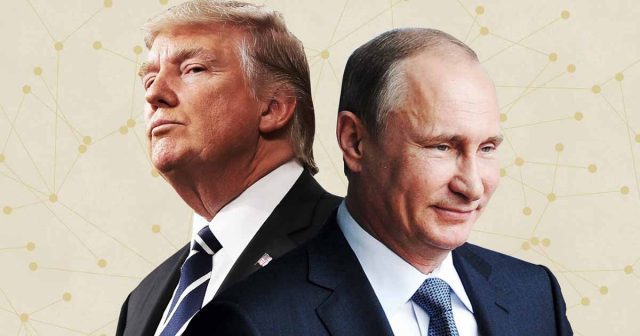News Analysis |
Russian President Vladimir Putin has said that he is going to mirror any U.S move regarding the deployment of nuclear-powered missiles. He said that if the United States of America went ahead to place nuclear power missiles in Europe, close to Russia, it will be responded with the deployment of Russian missiles close to the USA or by deploying faster missiles.
“Russia will be forced to create and deploy types of weapons which can be used not only in respect of those territories from which the direct threat to us originates but also in respect of those territories where the centers of decision-making are located,” he said. “These weapons, by their tactical and technical specifications, including their flight time to the command centers I’m talking about, will fully correspond to the threats that will be directed against Russia.”
President Putin’s annual address to federal assembly comes at a time when his popularity graph is going down. Last year during State of The Nation speech, he unveiled next-generation hypersonic missile which Russian was developing.
Under the terms of the agreement, both sides were not only to inhibit from developing new missiles within this range but also to destroy the already existing arsenal under this category.
In this year’s speech, he went into the specifics of how Russia is going to cut the inflight time of its missile short to reach the United States briskly, compared to the advantage which the U.S would have for firing its missiles from Europe. For instance, the hypersonic missile Tsirkon has been successfully developed, he claimed. Furthermore, Russia is developing an underwater Drone called Poseidon, which could be mounted on a submarine, capable of carrying a nuclear warhead.
Why Drastic Nuclear Hysteria Between USA and Russia Suddenly?
The background behind such a detailed account of nuclear standoff coming from President Vladimir Putin rests in the recently rescinded Intermediate-Range Nuclear Forces or INF treaty. INF was a pact signed between the United States of America and the Soviet Union in 1987 to prohibit both sides from building the missiles having a range between 500-5,500 kilometers.
Read more: A sombre run-up to US-Russia summit in Paris – M K…
The accord was a result of efforts carried out in the backdrop of heavy deployment of nuclear-capable missiles from both sides in Europe. Under the terms of the agreement, both sides were not only to inhibit from developing new missiles within this range but also to destroy the already existing arsenal under this category. Eventually, both sides ended up destroying 2692 short and intermediate range missiles by the implementation deadline of June 1, 1991.
Since 2013, both sides have been accusing each other of violating the treaty and developing missiles within the range. The United States especially has been critical of a new missile which Russia was developing called Novator 9M729. In December 2018, Russian and U.S officials met in Beijing to discuss the future and concerns regarding the INF treaty but no breakthrough was reached as both sides continued the blame game.
After the INF treaty is officially dead, the possibility of a nuclear standoff would once again increase between two greatest military powers of the contemporary world.
It eventually led to pulling out of the United States in earlier February which initiated the 60 days clock, as per the original agreement, for Russia to take the necessary steps to keep the treaty alive. Since Russia has utterly denied being the violator of the agreement, most likely outcome is the deal reaching its demise after 60 days period is over.
After the INF treaty is officially dead, the possibility of a nuclear standoff would once again increase between two greatest military powers of the contemporary world. During cold war days, the famous Cuban Missile Crisis led both the sides to a brink of nuclear confrontation which would have been catastrophic for global peace.
Read more: US Treaty pullout: EU urges talks to “preserve” nuclear treaty
The current order of the global security where economies and interests of countries are interrelated, the impact could be multiple folds. But it is expected that both sides would show restraint as it is not in the interest of either side both strategically and economically to push for confrontation.














